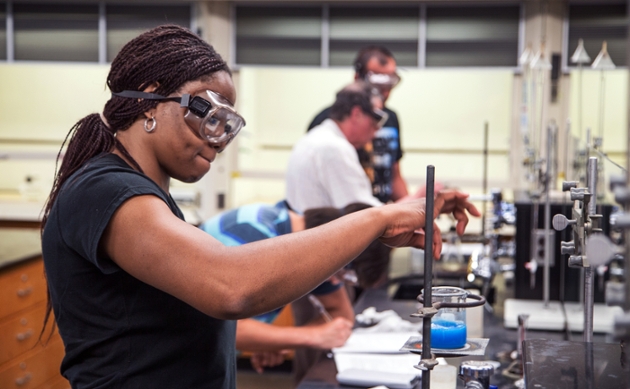Applying What You Learn

In his message to the students in the College of Arts and Sciences, Dean Boocker explains the importance of "making knowledge matter." We believe that means helping you develop useful, real-world skills alongside the sense of fulfillment and enrichment that a major in Chemistry can provide.
We also believe in making you aware of the knowledge and skills you're developing along the way, so that you can capitalize on your strengths in the marketplace, graduate school, and in life.
Knowledge & Skills Gained as a Chemistry Major
Knowledge:
- Students learn to appreciate the world on the macro-scale, such as the synthesis of medicine, plastics, or biomolecules while learning the underlying principles occurring on the molecular level
- Gain an understanding of how to collect, organize and interpret chemical data
Skills:
- Students learn to use sophisticated instrumentation and equipment to investigate the world around them
- Students learn to critically analyze chemical information, synthesize the information, and present the information to a technical audience
- Chemistry majors become adept in laboratory work and data analysis
- Chemistry majors apply the principles of chemistry to solve qualitative and quantitative problems